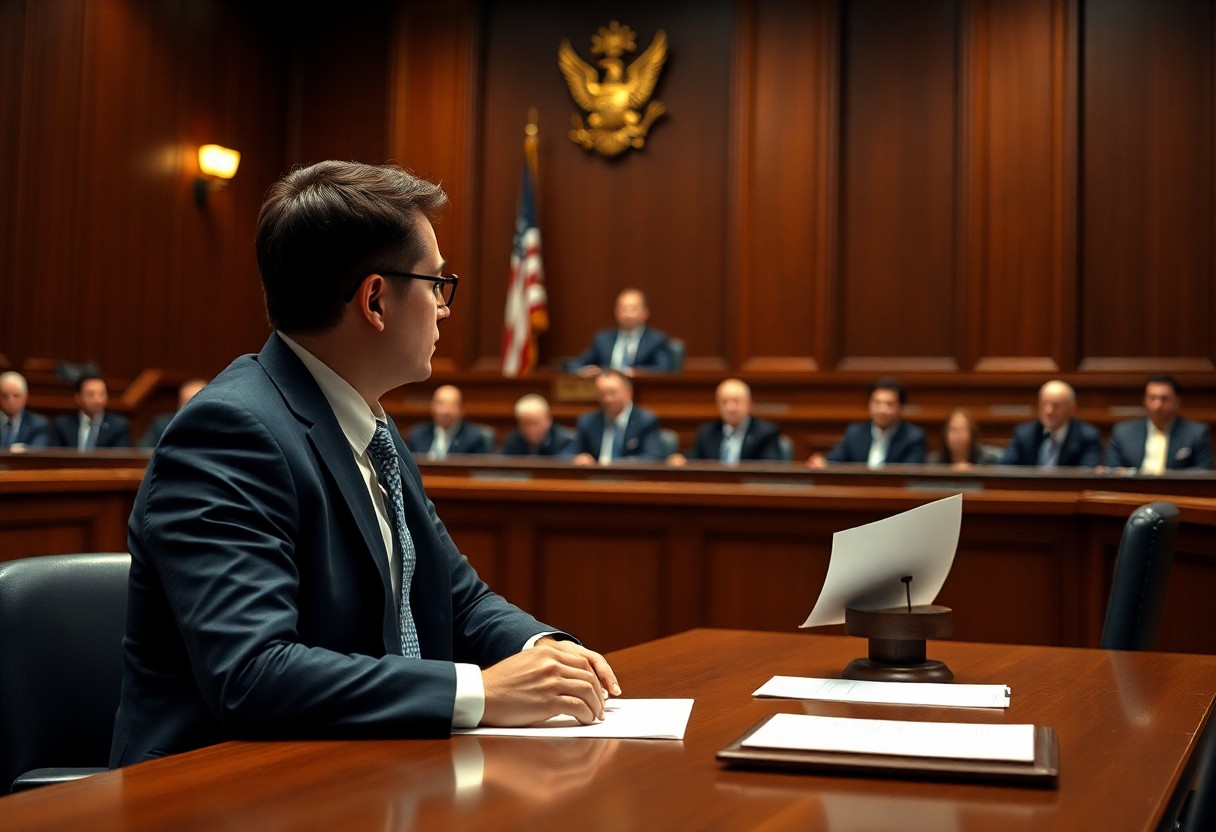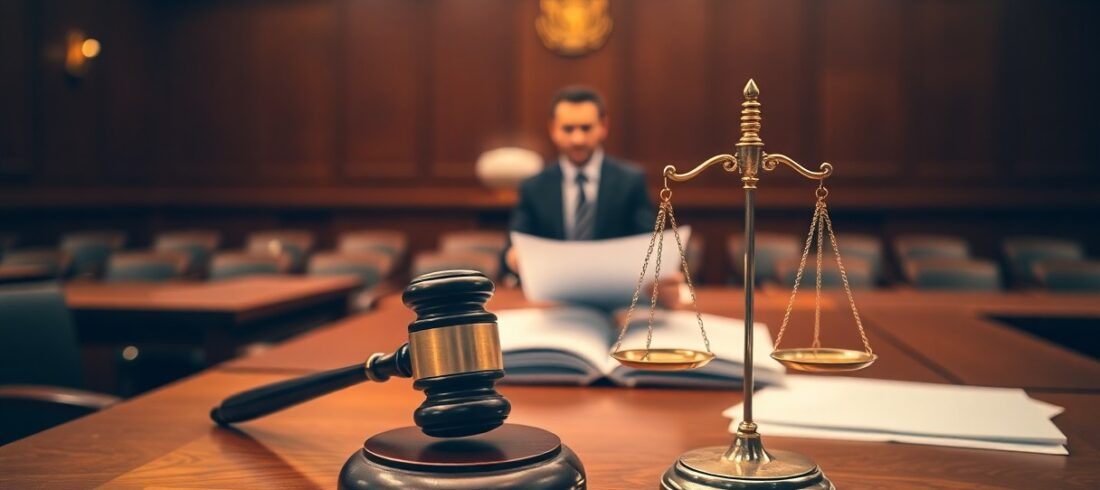There’s a significant intersection between psychology and the legal system that often shapes the outcome of legal proceedings. As you navigate the complexities of a legal case, understanding the contributions of psychologists can enhance your awareness of how mental health assessments, expert testimonies, and evaluations influence judicial outcomes. From competency evaluations to the psychological impacts of crime, psychologists offer insights that inform judges, juries, and attorneys, aiding in the administration of justice and the protection of defendants’ rights.
Overview of Psychology in Legal Context
While you may be familiar with psychology as a field focused on understanding human behavior, its intersection with law is both fascinating and complex. This relationship encompasses a range of practices and implications, all of which play significant roles in the legal arena. This chapter will outline the definition of forensic psychology, explore its historical development, and highlight the importance of interdisciplinary collaboration.
Definition of Forensic Psychology
Behind the term forensic psychology lies a specialized domain that combines psychological principles with the legal system. It involves the assessment and application of psychological knowledge to legal issues, particularly in criminal cases. Forensic psychologists evaluate individuals involved in legal proceedings, provide expert testimony, and offer insights on mental health factors that may influence legal outcomes.
Historical Development of Psychology in Law
The establishment of psychology in the legal context can be traced back to the late 19th century when the relationship between mental processes and behavior began to garner attention in legal matters. Over time, this relationship has evolved into a distinct field, with legal systems increasingly recognizing the value of psychological insight in understanding criminal behavior and competency assessments.
Due to the growing complexity of legal issues and an elevated understanding of mental health, psychology began to influence law significantly. Pioneers such as Hugo Münsterberg advocated for the role of psychology in legal trials, emphasizing the importance of psychological assessment in evaluating witnesses and defendants. As psychology progressed throughout the 20th century, its methodologies and findings became integral to legal proceedings, shaping how the courts would approach issues of intent, competency, and understanding of legal standards.
Interdisciplinary Collaboration
About the collaboration between psychology and law, you’ll find that both fields benefit from shared knowledge and expertise. This cooperation enhances legal outcomes by integrating psychological perspectives into legal processes, ensuring a more comprehensive understanding of cases.
Psychology and law continue to progress together, informing one another with research and practical applications. By fostering interdisciplinary collaboration, legal professionals and psychologists can work hand-in-hand to address complex issues such as competency, criminal behavior, and the effects of trauma. This synergy not only improves the legal framework but also serves to advocate for fair and just outcomes, benefit defendants, victims, and society overall.

Roles of Psychologists in Legal Proceedings
Assuming you are exploring the functions of psychologists within the legal system, you will find their contributions to be diverse and impactful. Psychologists often serve in various capacities, influencing the outcomes of legal cases, assessments, and interventions. Understanding these roles will give you insights into how psychology intersects with the law.
Expert Witness Testimonies
To support legal proceedings, psychologists frequently provide expert witness testimonies, sharing their specialized knowledge about mental health issues. Their insights can clarify complex psychological concepts for judges and juries, ultimately aiding in the decision-making process.
Psychological Evaluations
Across legal scenarios, psychologists are tasked with conducting psychological evaluations. These assessments can determine an individual’s mental state at the time of an offense, support custody disputes, or evaluate competency for trial. Evaluations also inform the court about the potential for rehabilitation and the necessary interventions.
This process typically involves standardized tests, interviews, and behavioral observations, all aimed at providing an accurate depiction of an individual’s psychological functioning. A thorough evaluation aids the court in making informed decisions and ensures that justice is served fairly.
Competency Assessments
Beside psychological evaluations, competency assessments are another significant role for psychologists. These assessments help determine whether a defendant is mentally capable of understanding the legal proceedings against them, thus ensuring a fair trial.
In fact, competency assessments often include understanding the charges, the potential consequences, and the ability to assist in one’s defense. Psychologists employ structured interviews and tests to assess a person’s cognitive abilities, ultimately providing the court with a comprehensive understanding of the individual’s legal capacity.
Risk Assessments for Reoffending
Reoffending risk assessments play a crucial role in determining the likelihood of an individual committing future crimes. Psychologists utilize various tools and methodologies to evaluate factors that contribute to recidivism, influencing sentencing decisions and parole considerations.
For instance, these assessments examine personal history, mental health, substance abuse, and socio-environmental factors that may heighten the risk of reoffending. By empirically determining the risk level, psychologists help the legal system make informed decisions about incarceration, rehabilitation, and community safety measures.
Psychological Factors in Criminal Behavior
For understanding criminal behavior, you need to consider several psychological factors that contribute to illegal actions. These factors can provide insight into the mindset of individuals who commit crimes and inform both prevention strategies and legal perspectives. Here are some key elements that influence criminal behavior:
- Mental health disorders
- Trauma experiences
- Substance abuse
- Environmental influences
- Socioeconomic status
Any comprehensive analysis should take these factors into account, as they can significantly impact an individual’s choices and moral reasoning.
Mental Health Disorders and Criminality
After understanding the link between mental health disorders and criminal behavior, you might find that individuals with certain conditions may struggle with impulse control, decision-making, or understanding consequences. These challenges can lead to unlawful actions, particularly when untreated or unrecognized.
The Role of Trauma in Criminal Behavior
Role of trauma cannot be understated when assessing criminal behavior. Many individuals who engage in criminal acts have experienced significant trauma, which can influence their psychological state and behaviors. In addressing this, it’s important to explore how unresolved trauma impacts one’s choices in high-stress situations.
This understanding highlights the importance of therapeutic interventions for those with traumatic backgrounds, as addressing these underlying issues can change behavior patterns and lead to rehabilitation instead of recidivism.
Influence of Substance Abuse
Criminal actions are often linked to substance abuse, as the use of drugs and alcohol can impair judgment and increase impulsivity. When substances alter your perception, it becomes easier to engage in illegal activities, often without considering the consequences.
Hence, it’s critical to recognize that the cycle of substance abuse can lead to repeated offenses. Addressing addiction needs to be a part of the criminal justice approach, aiming for rehabilitation rather than solely punishing behavior.
Legal Standards and Ethical Considerations
Despite the complexities involved, psychologists play a vital role in legal proceedings where ethical considerations and legal standards intersect. Your understanding of these parameters ensures that your contributions are not only effective but maintain the integrity of both your profession and the justice system.
Ethical Guidelines for Forensic Psychologists
Guidelines set forth by organizations like the American Psychological Association provide you with a framework to navigate the interplay of psychology and law. These ethical standards emphasize the necessity of competency, informed consent, and a commitment to beneficence, ensuring that your practices contribute positively to the legal process.
Confidentiality and Privilege Issues
Confidentiality is paramount in your work as a forensic psychologist. You must navigate the complexities of what information can be disclosed, especially when it involves legal cases. Understanding the nuances of attorney-client privilege and the exceptions that apply in legal contexts is imperative for maintaining ethical standards.
But confidentiality is not an absolute shield. In certain situations, you may be obligated to break confidentiality if there’s a risk of harm to someone or if mandated by law. Training on these issues is key, as understanding the limits of confidentiality will help you protect your clients while also fulfilling your legal obligations.
Competency to Stand Trial Standards
Around the globe, standards of competency to stand trial are pivotal in determining whether an individual can comprehend the legal proceedings against them. As a forensic psychologist, your role is to evaluate a defendant’s mental state and capability to participate in their defense actively.
A thorough competency evaluation involves not just assessing the individual’s mental health but also understanding their ability to grasp information about the legal process. Familiarity with local laws and the specific criteria used to judge competency will enhance your assessments and contribute to more informed legal decisions.
Application of Psychological Principles in Court
Unlike many other factors in legal cases, psychological principles play an integral role in shaping outcomes. The interplay between psychology and the justice system can enhance your understanding of how decisions are made, from jury selection to deliberations and the utilization of psychological evidence.
Jury Selection and Deliberation
Along with legal expertise, psychological understanding aids in selecting jurors who will impartially decide a case. By studying demographics, biases, and personalities, you can better predict how jurors will deliberate and ultimately reach a verdict.
Influence of Psychological Evidence on Legal Decisions
On top of jury dynamics, psychological evidence often influences judges and juries by providing insight into the behavior of parties involved. This evidence may include expert testimonies about a defendant’s mental state or the reliability of eyewitnesses.
Even subtle psychological evidence can shift perceptions in a legal context. For instance, when a psychologist presents findings regarding a defendant’s mental health, it may lead to considerations of diminished capacity or even an understanding of motivations behind criminal acts. Such evidence can sway juries, ultimately affecting verdicts or sentencing outcomes.
Importance of Psychological Profiling in Investigations
Around ongoing investigations, psychological profiling serves as a valuable tool. It allows you to understand the potential behaviors and motivations behind criminal actions, facilitating more informed strategies in solving cases.
Hence, employing psychological profiling can significantly contribute to an investigation’s success. By developing profiles based on patterns of behavior and psychological traits, investigators can narrow their focus, increase efficiency, and potentially prevent future crimes. This aspect of psychology enhances not only the investigative process but also the overall administration of justice.
Challenges Facing Psychologists in the Legal System
Keep in mind that psychologists face several challenges while navigating the legal system, which can significantly affect their work and the outcomes of cases. These challenges can arise from a variety of factors, including the misuse of psychological evidence and the impact of personal biases.
Misuse of Psychological Evidence
After thorough assessments, psychologists may find that their findings and recommendations are misinterpreted or exploited in legal settings. This misuse can distort the truth and hinder the justice process.
The Impact of Bias and Stereotypes
The influence of bias and stereotypes can deeply affect the outcomes of legal proceedings. When you consider the following factors, it becomes clear how pervasive biases can skew judgment:
| Factor | Impact |
| Personal Biases | Leading to skewed evaluations |
| Cultural Stereotypes | Influencing decision-making |
| Gender Bias | Impairing fairness in assessments |
| Confirmation Bias | Strengthening preconceived notions |
| Media Influence | Shaping public and jury perceptions |
- The cumulative effect of these biases can detract from the integrity of the legal process.
Another important aspect to discuss is the role of stereotypes that may perpetuate discrimination. When you think about this, consider how stereotypes might unintentionally influence you or others in the courtroom environment:
| Stereotype | Potential Consequence |
| Racial Stereotypes | Judgments based on race rather than facts |
| Socioeconomic Stereotypes | Generalizations affecting case outcomes |
| Gender Stereotypes | Preconceived notions impacting testimonies |
| Judicial Stereotypes | Leading to biased rulings |
| Victim Stereotypes | Distorting perceptions of credibility |
- The interplay of these stereotypes can inhibit fair evaluations and decision-making in legal scenarios.
Maintaining Objectivity in High-Pressure Environments
Beside these challenges, maintaining objectivity in high-pressure legal environments can be particularly daunting for psychologists. The stress and emotional weight of the cases can cloud your judgment.
Psychologists often find themselves under extreme pressure to make quick and accurate evaluations. The need to remain unbiased while dealing with difficult emotions can make this task even more challenging. You might face external pressures from legal professionals or internal pressures from your own emotional responses to the cases. Acknowledging these feelings is vital in order to preserve your objectivity and ensure the integrity of your work.
Conclusion
To wrap up, understanding the role of psychologists in legal proceedings is necessary for anyone involved in the justice system. Their expertise can provide valuable insights into mental health assessments, competency evaluations, and witness credibility. By leveraging psychological principles, you enhance your understanding of how mental health impacts legal decisions, ensuring a more informed approach to the nuances of each case. Engaging with psychologists can ultimately contribute to fairer outcomes in the courtroom.
FAQ
Q: What is the primary role of psychologists in legal proceedings?
A: Psychologists play several important roles in legal proceedings, primarily focusing on the assessment of individuals’ mental health and behavior. They provide expert testimony regarding psychological evaluations, competency assessments, and the potential influence of mental health on criminal behavior. Their insights can aid in understanding a defendant’s state of mind, aiding judges and juries in making informed decisions.
Q: How do psychologists conduct evaluations for legal cases?
A: Psychologists use a variety of assessment tools and methods, including interviews, standardized testing, and behavioral observations, to evaluate individuals involved in legal cases. These evaluations may assess competency to stand trial, risk of reoffending, and the impact of mental illness on the individual’s actions. The findings are compiled into a report that can be used in court as part of the legal argument.
Q: Can psychologists influence sentencing outcomes in criminal cases?
A: Yes, psychologists can significantly influence sentencing outcomes by providing insights into an offender’s mental state, understanding of their actions, and potential for rehabilitation. Their expert testimony regarding mental health issues can lead to alternative sentencing options, such as mental health treatment programs instead of incarceration, particularly for individuals diagnosed with severe psychological disorders.
Q: What are the ethical considerations for psychologists working in legal contexts?
A: Psychologists in legal settings must navigate a range of ethical considerations, including maintaining objectivity, confidentiality, and integrity. They have an obligation to provide unbiased evaluations and to disclose any potential conflicts of interest. Additionally, they must ensure that their assessments and testimonies are based on sound scientific practices and remain within the boundaries of their expertise.
Q: How do psychologists assist in civil legal cases?
A: In civil legal cases, psychologists can provide valuable insights into issues such as personal injury, child custody, and workplace disputes. They may conduct assessments to determine the psychological impact of an incident on an individual or evaluate parenting capabilities in custody cases. Their expert analysis helps to clarify the psychological aspects of a case and inform legal decisions regarding compensation or custody arrangements.




